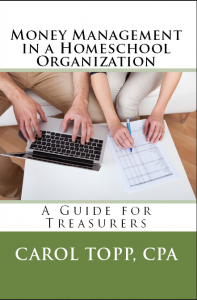
Carol,When does extra money from the previous year’s budget get added into the new year’s budget? Our treasurer dumped all the leftover money from our prior year into the new year. I am pretty sure that isn’t supposed to happen. The way she has it, it looks as though we have $1,200 more to spend in next year than we really do.Am I right to think that we have to base our budget with just dues that we hope to get in the coming year?Angela
Angela,
Technically, a surplus (leftover money) never gets added to the next year’s budget. The surplus stays in your checking account (as an asset) and is reflected on the Balance Sheet (as the balance in the checking account), not as part of next years’ revenues.
In accounting we have two major financial statements: the Statement of Revenues and Expense (sometimes called Profit and Loss) and the Balance sheet which shows what you own (the assets) and what you owe (the liabilities).
Of course your board should have a plan for your surplus. Maybe it stays as an emergency fund or as the deductible on your insurance policy or is accumulated for a big future purchase (like equipment or a building). Some boards like to have the treasurer put a footnote on the Balance Sheet about money is kept in reserve and it’s purpose, so it doesn’t get spent. Or they move some money into a saving account, so it is less likely to be spent.
Something like this:
Balance Sheet as of DATE
Assets
Checking Account $5,400.00
Savings Account* $1,550.00
Total Assets $6,950.00
*Savings set aside for:
Emergency fund: $1,000
Insurance deductible: $500
Saving for science equipment: $50
“Am I right to think that we have to base our budget with just dues that we hope to get in the coming year?” I think that is wise fiscal management to live within your means each year.

My book Money Management in a Homeschool Organization would be very helpful to your treasurer.
HomeschoolCPA.com
